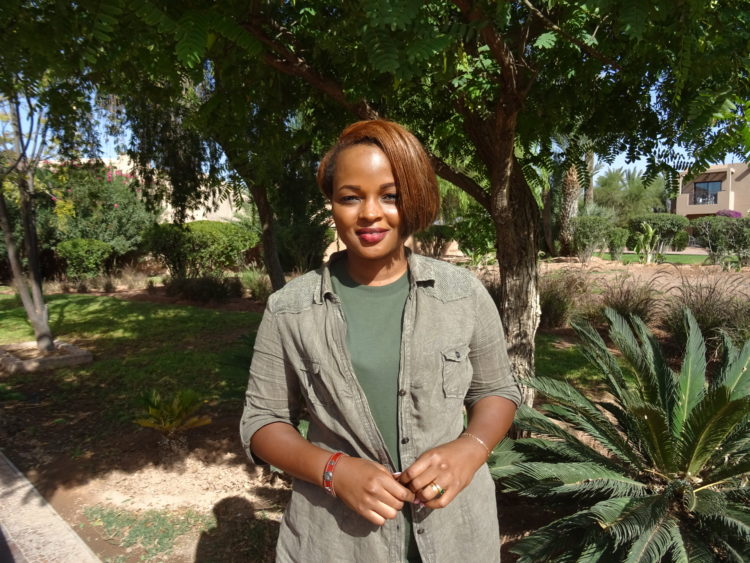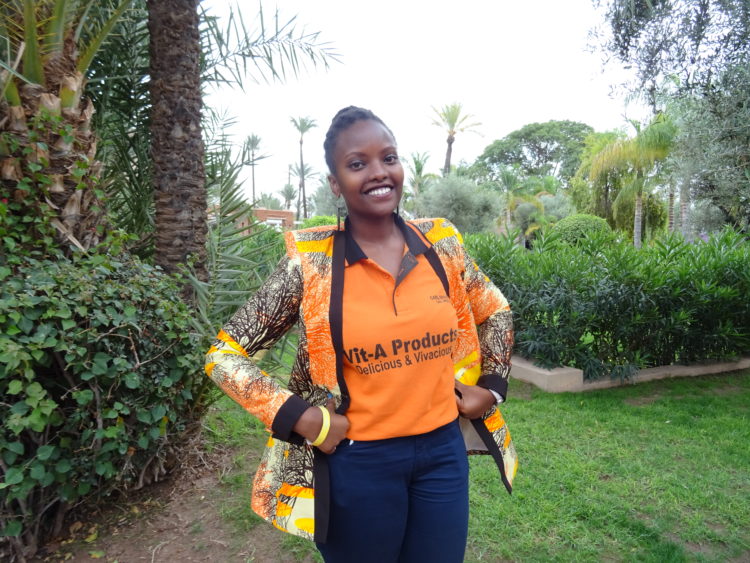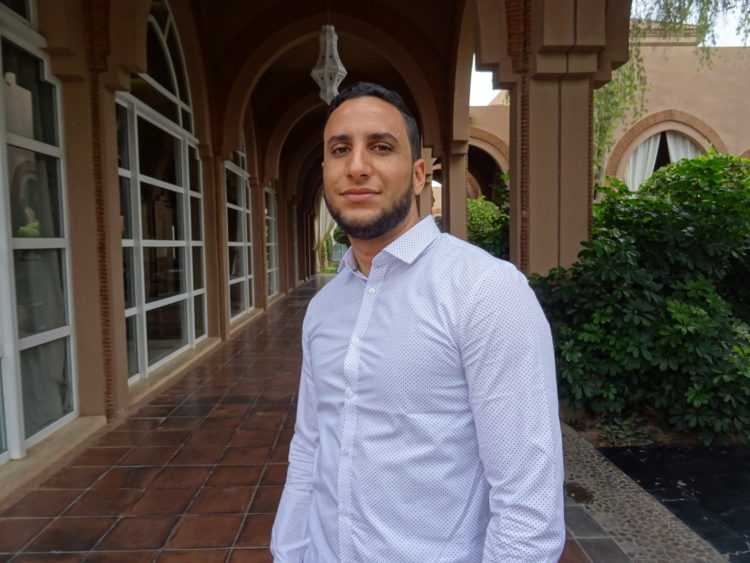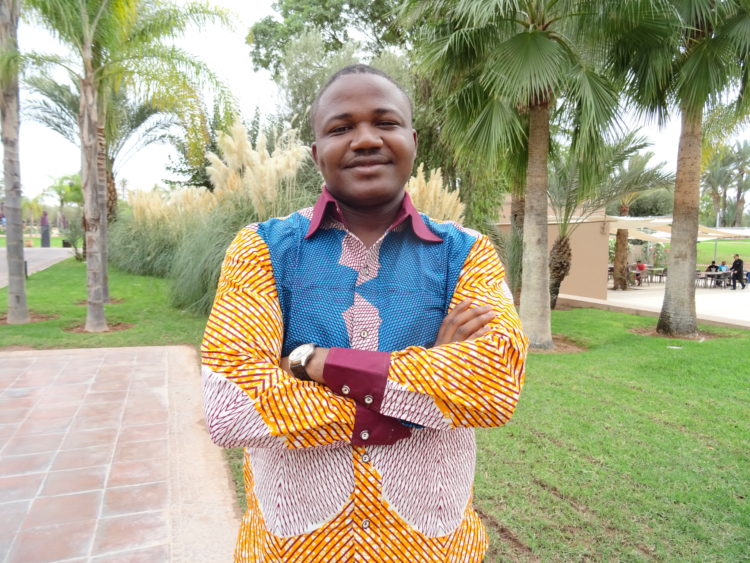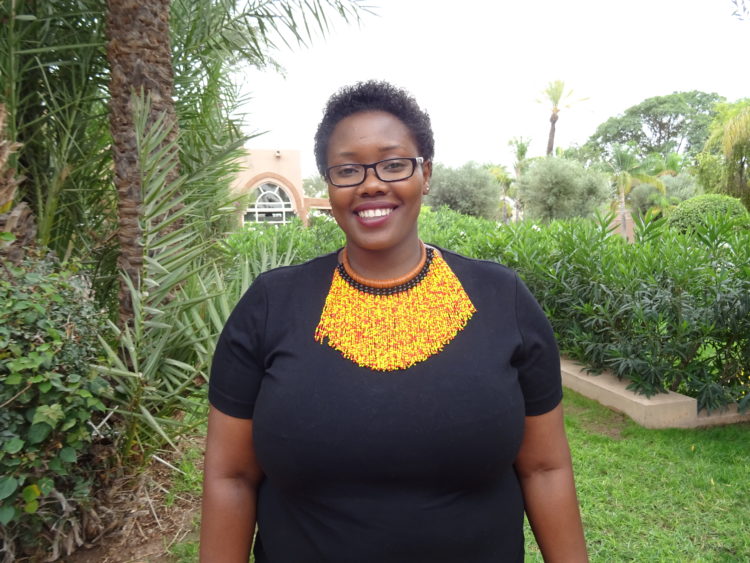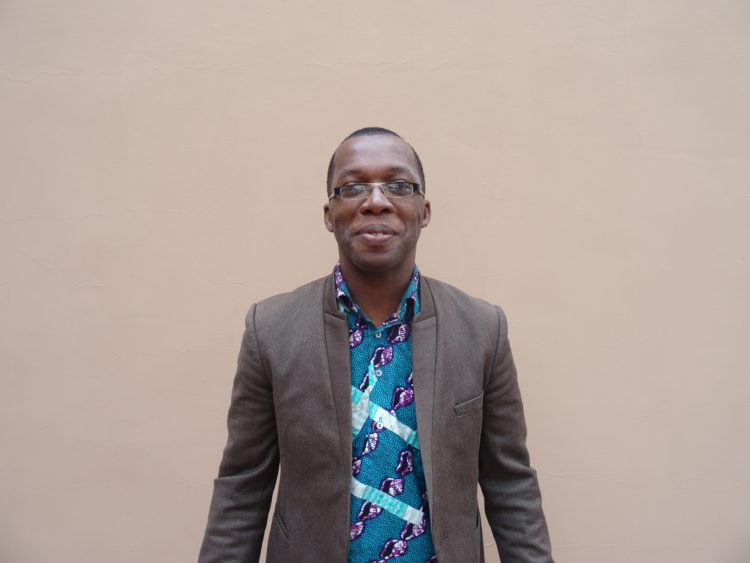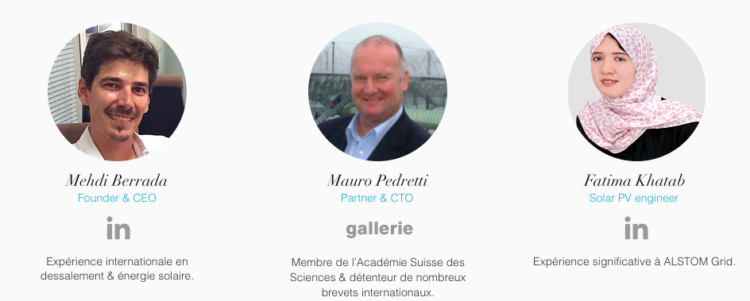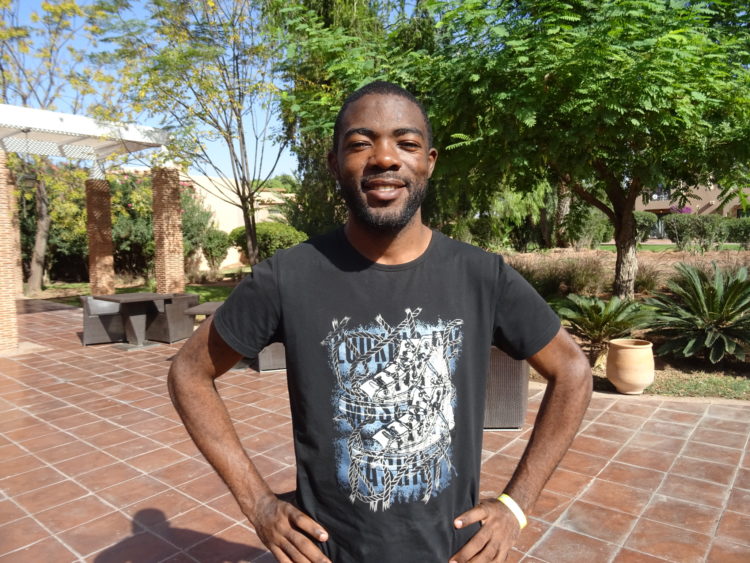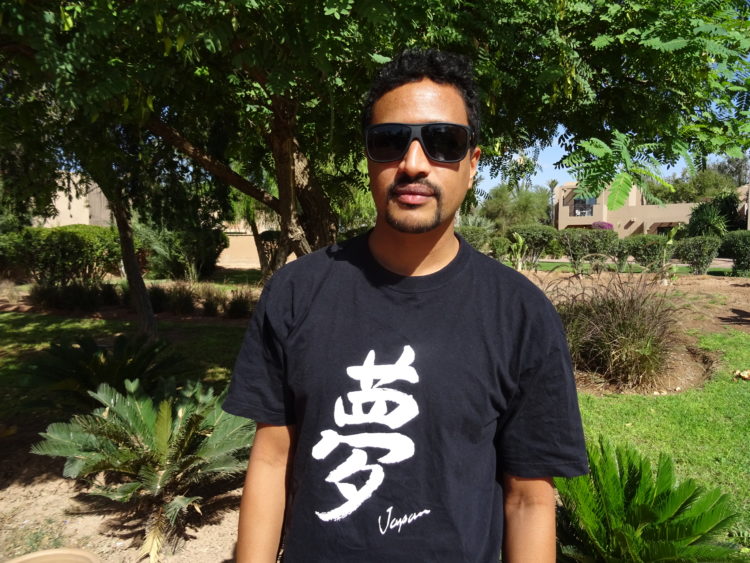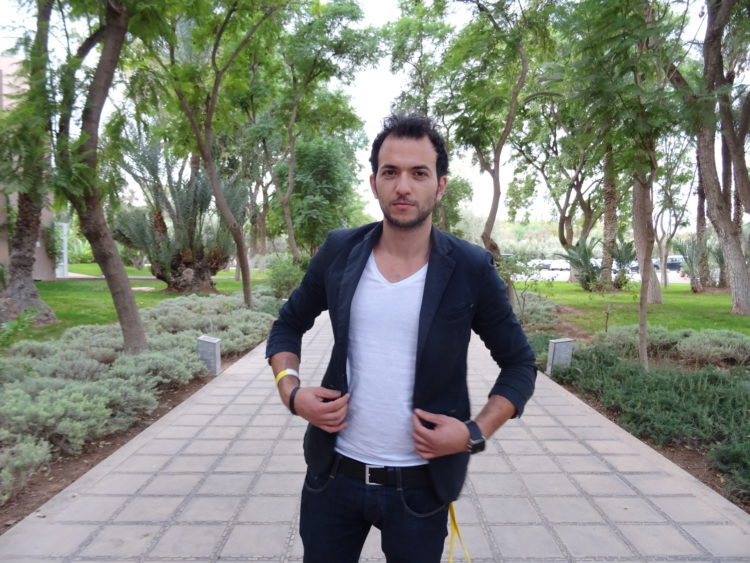New forum Africa 4 Tech held its first conference in Marrakesh last week, just before the eco celebs land for COP22.
40 young entrepreneurs from all over the continent pitched their ideas to a panel of judges. The two days were a chance to talk about the technological advances that will make the most difference to the lives of ordinary Africans.
Bravo to the #africa4tech champions #A4T @lilly_makoi @flavienkouatcha @dkoa and Mehdi Berrada pic.twitter.com/TW38yyyQKb
— TRUE Africa (@_TRUEAfrica) November 4, 2016
From mobile clinics, to ingenious ways to get people opting into healthcare insurance, from fish-breeding containers to sweet potato spaghetti, the innovations were creative, unexpected and useful. The techies were from everywhere – from Cairo to Joburg and from Senegal to Kenya – and for once, Lagos didn’t feel like the centre of the techie world.
Lilian was one of the four winners of Africa 4 Tech for her app that helps the poor access medical services. The 28-year-old Tanzanian has come up with an astoundingly practical solution to a widespread, and potentially fatal, problem.
Jamii provides access to healthcare through affordable insurance for people who make less than $70 a month. It links up one of the country’s biggest insurers, Jubilee, and the telecoms giant Vodacom.
The app was born from preventable tragedy. ‘The idea came after my housemate lost her husband in an accident … He was taken to the hospital and they didn’t have $25 to access medical services. They had to wait till the next morning.’ He got worse during the night. ‘I felt really guilty, because these were people I knew and it wasn’t like I couldn’t afford it but she didn’t ask.’
Her subsequent research revealed that only 5% of the population is insured: until now it has been too expensive to take such little sums of money off so many people using traditional banking methods.
Jamii was the solution: an app which allowed a telecommunications company (which acts as a distribution and payment channel) to partner with an insurer (which provides the service). She worked to persuade Vodacom ‘how much launching a product for the low income population adds value to their brand and is an additional revenue stream.’
Selling my story again…. @jamiiafrica #A4T PS. I had packed a dress for this😅 #LostLuggage pic.twitter.com/FGMSmIsQEV
— Lily Makoi Rabi (@lilly_makoi) November 4, 2016
At the beginning, she was the driving force: ’It was me doing everything, with my founding partner and the tech guy.’ Her co-founder put forward some money to rent an office space and build a visual prototype. Now, she says laughing, the angel investor ‘is actually my husband!’
After launching in 2015, she used funding from the Bill Gates Foundation to refine the product design (and come up with a new name). The changes have worked: ‘We have 8,000 people who are active. The growth rate is 40% month on month.’
Her team is now working on education more of the population about financial services and insurance. Jamii Mobile clinics are also in the pipeline.
I ask the mother of two children what motivated her. ‘I love innovation. I love understanding the needs of the poor and building stuff.’
Ever heard of sweet potato spaghetti? Or a sweet potato entrepreneur, for that matter? I am sitting opposite a quietly spoken 23-year-old business woman who wants to get you eating more of the orange-flesh root vegetable, in whatever form it takes.
The story behind it is a very human one. Larissa Uwase lost her mother when she was seven years old. ‘My father had to prepare food and it wasn’t easy. At the time we ate beans and water. It was just after the instability in Rwanda so it was a bit hard to find food.’
Sweet potato has a bad reputation in Rwanda: it is one of those crops that often gets overlooked (or fed to animals or thrown away) because people do not know how to cook it. In fact, it’s very nutritious and contains plenty of Vitamin A – deficiency in the nutrient affects 35 per cent of childen in Rwanda. It can cause blindness as well as limiting growth, weakening immunity and increasing mortality.
Larissa wants people to understand the value of the vegetable ‘so other children don’t face the same problem of malnutrition that I did.’
Carl Group is the product of her ‘passion for food processing and feeding people.’ Alongside three other founders and five staff members, she supplies sweet potato vines to women farmers and buys the excess product off them. The vegetables are then made into Vit-A crisps, biscuits, bread and donuts all stored in environmentally friendly packaging.
Happening now:Closing Ceremony of Rwanda trading mission in #BRAZAVILLE! There are many opportunities there @PSF_Rwanda @CYEPSF @RwandaAgri pic.twitter.com/OG1TPS0f6L
— CARL GROUP (@carl_ltd) November 4, 2016
When they started in 2014, they used their own money. They have now raised capital from various investors and won grants from different awards. They work with 14 stores in Kigali and three school cantines and two of her parners are currently in the DRC looking at foreign expansion. And she tells me that when she’s not considering how to get sweet potato spaghetti on to the market, she likes to spend her time singing and writing.
It was after seeing an old woman faint in front of him that Anass El Hilal decided to start MedTrucks, a startup that supplies and manages mobile clinics in Morocco. He explains that she was diabetic and coming into town for treatment. ‘These people have two burdens: they are ill and they are far from healthcare.’
MedTrucks treat chronic illnesses and the digital app MedMapping localises potential patients and lets them know when a truck will be visiting their area.
https://twitter.com/FpfOdess/status/793065702034923521
There are three of them in the startup but they works with lots of different healthcare partners. They’ve secured funding from various partners including the OCP Foundation and will be launching a pilot truck in Sidi Kacem in the coming weeks.
‘Mobile healthcare is important for Africa because it allows to mutualise and rationalise limited resources.’
Otherwise the 28-year-old splits his time between Morocco and Montpelier.
A free school meal can often be a deciding factor in whether a poor family sends their children to school. Often they cannot spare them from the farm. Alfred is a 26-year-old social innovator from Ghana who has developed a way to tackle this issue.
I've seen too much Hope at @Africa4Tech confab #A4T to keep believing in #Africa. @_TRUEAfrica Frugal innovation 4 Social Innovation
— Alfred Adjabeng (@AlfredAdjabeng) November 4, 2016
The School Farms Programme ‘is a community school feeding support programme that helps empower schools to grow their own food while providing a space to teach the skills needed for agriculture.’
He was inspired by his own upbringing. On Saturdays, he would follow his father, an educationalist and a smallholder farmer, to the farm. ‘That’s where I got the inspiration to link education to nutrition to solve problems in society.’
The organization is made of four members of staff and 20 volunteers who work closely with the community (who provide land for free if the school cannot) and local government (which helps with farming skills).
They set it up three years ago with an award from SET Africa fellowship programme run by Makerere University Business School in Uganda, as well as money from USAID and the Mastercard Foundation. They need more to scale up and develop a curriculum. They’re also considering how they’ll adapt their strategy if they move into Nigeria.
When he’s not watching social innovation documentaries, he tells me that he likes to watch ‘very adventurous movies.’ He also, as you’ll see from the photo, likes to wear adventurous shirts.
It was after coming back after five years working for Huawei in Asia that Rose decided she wanted to start farming. But when she purchased land, the legal documents she held were deficient. Rather than providing a record of boundaries, they only listed her neighbours who, she realized, ‘could change at any point.’ In addition, she says ‘I almost had the only copy; so this exchange of money was not really recorded anywhere.’
The startup Agrinfo allows smallholder farmers to map their boundaries using the GPS signal on their mobile. With these, their details, and an adjudication process where the neighbours confirm the boundaries, Agro Info produces a document making them the legal owners of their land.
In a country where 80 per cent of the population are farmers, Rose says, and only 10 per cent of those are legal owners of their land, an affordable system is vital. This means that land can pass on to next of kin – widows or orphans – rather than returning automatically to the man’s family. Disputes are avoided and double selling of land is made far less easy.
They’ve got funding from CTA, an organization based in the Netherlands, which works on how ITC can help farmers, and a Finnish organisation called TANZICT. The four-person team is in the process of adding a data-service so interested partners know what farmers are growing and what products they need. I ask Rose, who’s based in Dar el Salaam, what she does when she’s not on the farms. ‘I don’t look it but I’m very good at swimming.’
Otherwise, she’s motivated by much the same things as this impressive group of entrepreneurs: ‘My passion is using what I have to make a better world for other people.’
‘The aim is to give value to anything which might have value,’ Guy, one of the founders of the waste management company Soleen, explains.
This means the company based in Abidjan does everything from collecting cocoa leaves to make rugs to processing animal waste. They also have a partnership with Carrefour to make sure food past its used-by-date feeds animals in zoos or parks.
The father of a three-year-old little girl (Kimora – ‘Like Kim Kardashian!’ he jokes) admits that despite his and his business partner Elisabeth Yoboue’s extensive professional experience, it was hard at first. ‘In the beginning it was hard to raise money. We put our savings into Soleen and borrow money to fulfill orders.’
Now the five-person team regularly has orders of over 10,000 euros. They have partnerships with European companies and are negotiating with an American startup ro bring intelligent bins to West Africa. ‘I’ve always wanted to make a difference, and not only in Africa!’ It seems to be happening.
Alto Solution develops technology for water and technology. Founded in July 2012, in Agadir (where Mehdi surfs to relax), the company develops thermo-solar fields in order to produce heat or energy.
This has many uses – for example, Mehdi tells me, it can be used in ‘factories that produce milk which need to produce heat for pasteurization. Rather than burning fuel or natural gas, they can use solar energy.’
They also develop technology for desalination for large-scale agriculture or to supply towns with drinkable water.
The aim is to prove the concept with pilots, develop patents and then sell licences to international companies. But, the more knowledgeable among you might exclaim, this technology exists already! Yes it does, Mehdi tells me, but Agro Solution reduces costs of more than 60 per cent, while improving performance.
They sell expertise and skills to companies that have the capabilities to put their tech into action, on a large scale. This means that finance is needed mostly for research, IP, and other administrational concerns, rather than putting the tech in place.
The engineer, who worked in France before coming home, finishes triumphantly: ‘It’s durable, respectful to the environment, and cheap!’ He can afford to be confident; he was one of the four Africa 4 Tech digital champions
Bravo to the #africa4tech champions #A4T @lilly_makoi @flavienkouatcha @dkoa and Mehdi Berrada pic.twitter.com/TW38yyyQKb
— TRUE Africa (@_TRUEAfrica) November 4, 2016
‘My 90-year-old gran is always surprised that she sells a kilo of cocoa for as much as it costs to buy a 100g bar of chocolate,’ the Cameroonian entrepreneur Flavien Koutacha says. And so, he’s on a mission to educate farmers and turn them into business people. He also wants to turn everyone into a farmer. He tells me, ‘My passion for farming has no limits.’
The 27-year-old, who has worked at Bolloré and Rocket Internet, has just been awarded the title of Digital Champion at Africa 4 Tech for his Tilapia and carp fish-breeding kit that allows anyone to breed fish – the second most imported food stuff in Cameroon – in their own back yard. The water is then processed so that it’s fit for agricultural use – the fish excrement is used as fertilizer – and is distributed in the plant and crop section of the kit. His six-person team has sold over 200 units and they’ve had interest from an American venture capitalist.
Un panel venu de 4 régions de l' #Afrique et travaillant dans des domaines tous impactés par les changements climatiques#COP22 #ActionTime pic.twitter.com/JuqPkDaRH7
— Flavien Kouatcha 🇨🇲 (@flavienkouatcha) November 7, 2016
The keen tweeter, dancer and walker has also just launched a YouTube channel which aims to teach people about farming. It’s just one part of his movement Vert Et Viable and Save Our Agriculture, which aims to educate people on environmental issues, preserving the planet for the next generation, and to get more people into farming.
In Cameroon, Flavien tells me, parents want their children to be engineers, lawyers or doctors. In fact he felt a little isolated when he left his job to follow his entrepreneurial dream. His next product will be a digital app called My Aqua that allows you to manage your miniature container farm from a distance – looks like young Cameroonians won’t have to choose between being a lawyer and a farmer.
The Agbogbloshie Makerspace Platform (& for short) in Accra is a startup ‘developing and deploying open architecture for making, to drive the circular economy.’
This all seems a little abstract. But in practice, it’s not. & works to support the men and women who use and recycle e-waste in the world’s largest e-waste scrapheap. They’ve just built a mobile makerspace on the site (which is only made of material from the site) and are about to install customisable toolboxes in the workshops to allow these autodictact engineers to make scrap into fridges, drones and anything else someone might need. Its mobility makes it more flexible than a traditional Fab Lab.
Prophecyting https://t.co/oljVONCiwA via @qampnet
— Yasmine Abbas (@panurban) October 9, 2016
Ever since DK Osseo-Asare, architect and founder of Low Design Office and lecturer in design at Asheshi University in Ghana, started & in 2012 with French architect Yasmine Abbas, he’s been surprised.
Not only is ‘e-waste is a serious global concern that not enough people pay attention to,’ but it’s also a chance to make use of the talent of young people in the area who otherwise might be involved in criminal activity. ‘These people are doing what they do to survive. They’re educating and feeding whole villages in the north of Ghana.’
The project has lots of aspects – from running maker workshops and promoting collaboration between people who probably might never meet otherwise in Ghana’s rigid and class-based society; to developing a mobile app with open-source information so that those stripping appliances know what they’ll find and the best practices for using the parts. DK sees it developing into a pan-African network and they’ve even had interest from Seoul.
They bring together over 2,000 young people from around Ghana and around the world. In their workshops, informal workers from the scrap heap work with students, architects, graphic designers and musicians. Science, tech and engineering skills may be important but ‘you have to inject it with creativity.’
And it’s at this intersection, with ‘indigenous R&D’, that alchemy happens. DK Osseo-Asare explains that at the Agbogbloshie Makerspace Platform: ‘They imagine alternative possibilities; they imagine the future.’
Wes Chege from Nairobi startup OkHi is ‘on a mission to give people access’. That means giving people a physical address so they can receive goods and services. The physical address system consists of a GPS pin and a photo of your gate. And delivery services pay a subscription fee for the privilege of using the OkHi service.
“…These regions could go from having really imprecise address systems to the most precise in the world….”https://t.co/1dOlQYhaCe
— Wes Chege (@WesChege) July 16, 2016
It means that when you order a service, ‘it should get to your home without hassle, and without a phone call.’ So you’ll get your pizza while it’s still warm or the ambulance will arrive while you’re still alive.
The four-man team (which has now grown to nine) collected the data themselves initially. Now it happens organically through their partners – they cover 80 per cent of the delivery area in Nairobi. Last year they received US$750,000 in funding from investors including ex-Google chief financial officer Patrick Pichette and Silicon Valley venture fund Garage Capital.
https://twitter.com/Olemaesia/status/770639894393790464
They’ve concentrated on the Kenyan capital first, to test all the different variables, and the next thing is to move it to a different city. OkHi’s a great name – and one to remember: it may just save your life.
Secure Drive does exactly what it says on the tin. It makes driving safer. Their current project is a ‘black box’ for cars, as Ahmed Ghamhgui, a 26-year-old Tunisian engineer, and founder of the company puts it.
If you have an accident in an isolated place, and there’s no one there to call the police, the Secure Drive technology works out you’ve had a crash and sends a GPS signal to the nearest ambulance service and anyone else you’ve programmed into the app (your boss or your family, for example).
When ten minutes can mean the difference between life and death, speeding up the process, and making sure it happens if someone has been knocked out, is vital. They see their main clients as insurance companies, car hire services and long-distance transportation.
Ahmed and his co-founder have raised funding for prototypes through grants and are now looking for business partners and an investor to put their tech into production. They are based in Tunisia but manufacturing in China.
These are just some of the startups which came to the Africa 4 Tech conference. Find out more about the initiative here.

